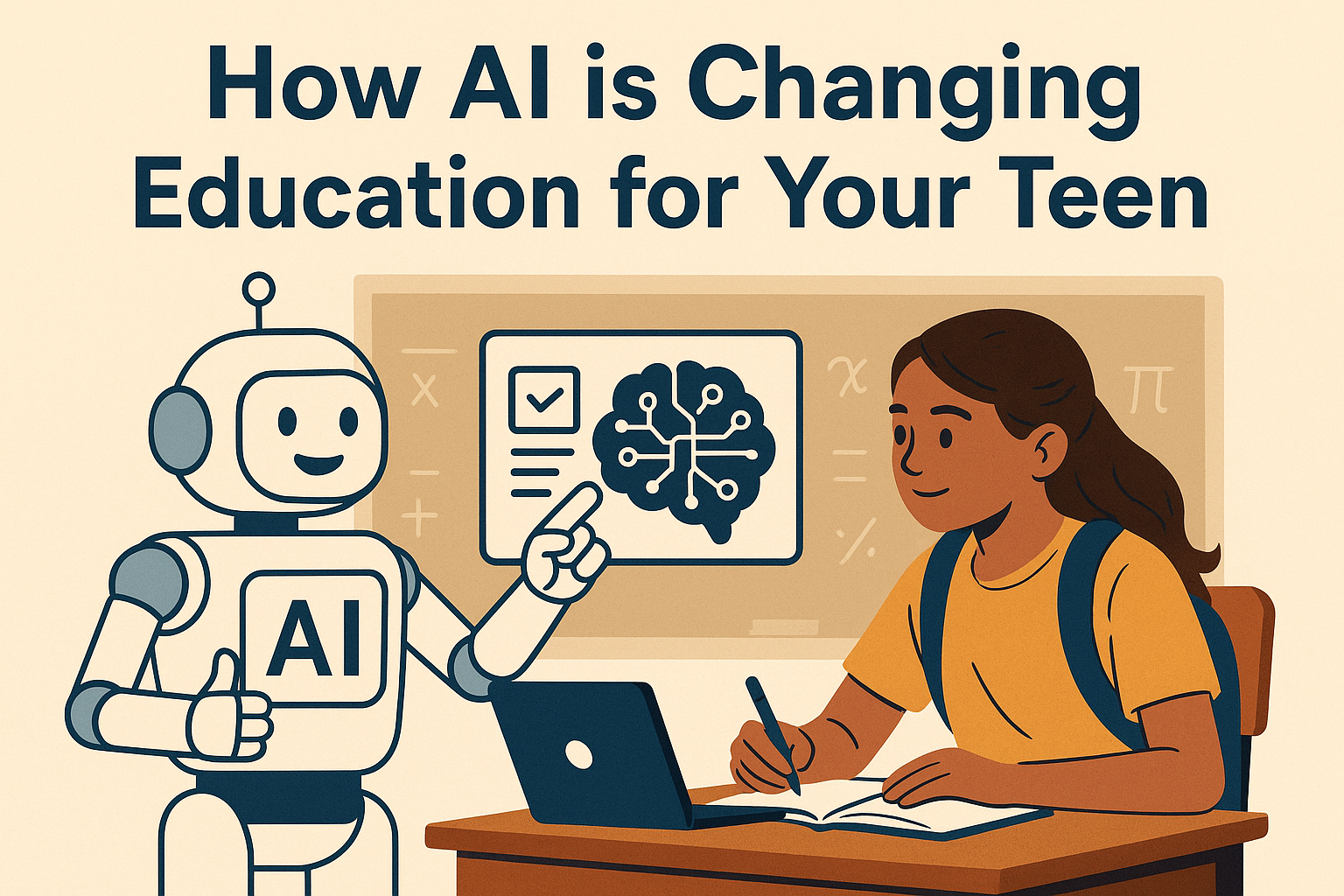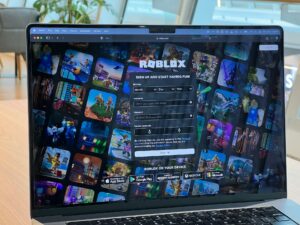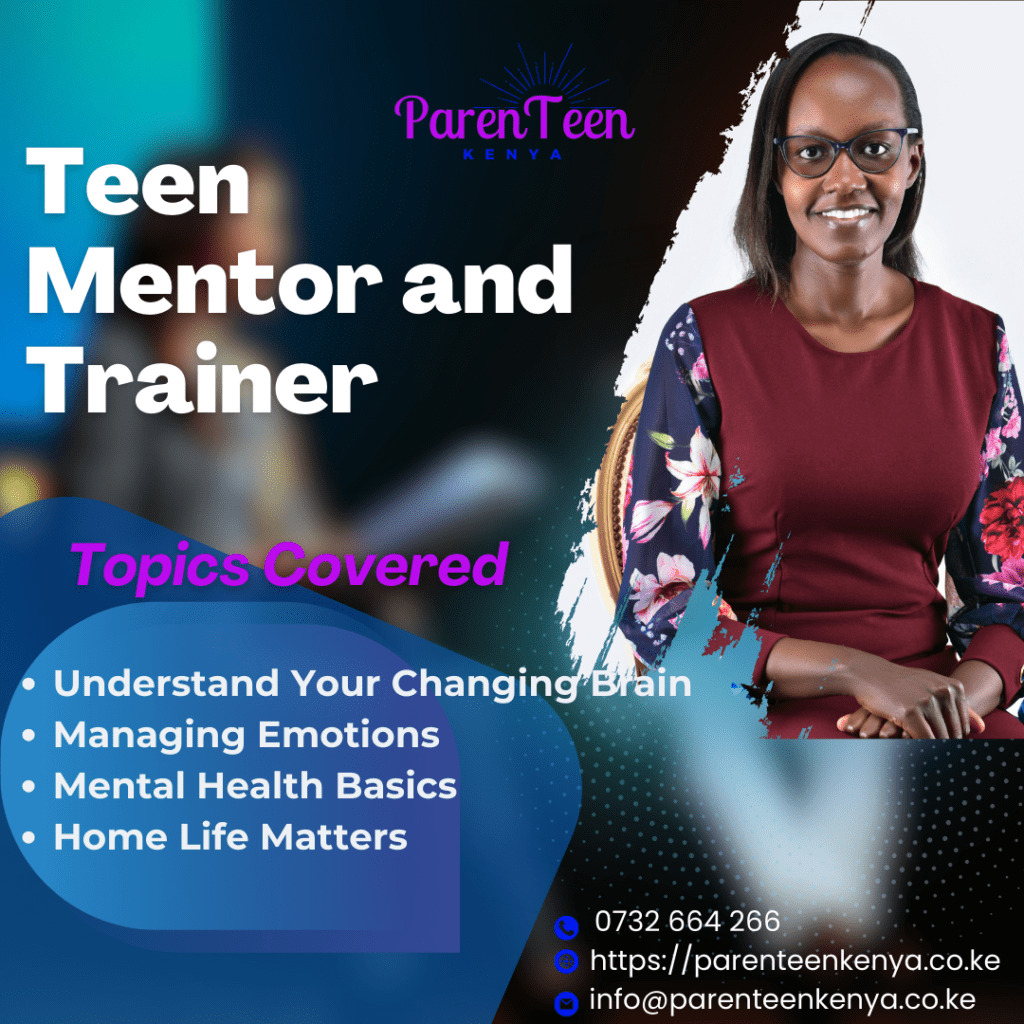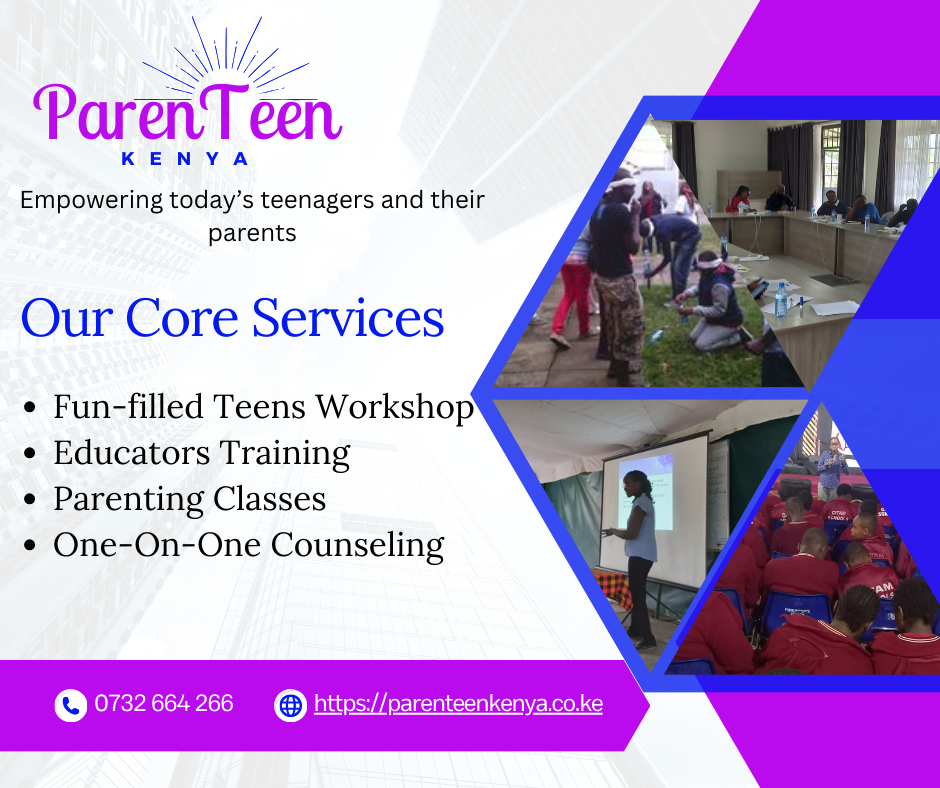Your teenager likely mentions ChatGPT, AI tutors, or asking the computer more often than you’d expect.
If you’re wondering what artificial intelligence actually means for your child’s education, you’re not alone.
Many parents across Kenya are experiencing this new reality where smart technology is reshaping how students learn, study, and prepare for their futures.
Artificial intelligence in education isn’t science fiction; it’s happening right now in your home.
Whether your teen uses AI for homework help, exam preparation, or career exploration, these digital tools are becoming as common as textbooks once were.
The key is understanding how AI impacts your child’s learning journey, from elementary problem-solving to university readiness.
As a parent, you don’t need to become a tech expert overnight.
However, you do need to understand AI’s role in modern education, both its incredible benefits and potential pitfalls.
Your guidance will determine whether AI becomes a powerful learning companion or a harmful academic tool for your teenager.
Let’s explore how AI is transforming your child’s educational experience and what you can do to ensure they benefit responsibly.
AI is Becoming Your Teen’s Extra Tutor
Think of AI as a patient teacher who never gets tired of explaining the same concept repeatedly.
Unlike human tutors who charge hourly rates, AI tutoring is available 24/7 at no extra cost.
Your teenager can ask questions about chemistry formulas at midnight or request help with essay structure on weekends without worrying about disturbing anyone.
AI tutors adapt to your child’s learning pace in ways traditional classroom teaching often cannot.
If your teen struggles with algebra, the AI can break down problems into smaller steps, provide unlimited practice questions, and explain concepts using different approaches until something clicks.
It’s like having a personal teaching assistant who remembers exactly where your teen left off yesterday.
Key benefits of AI as an extra tutor include:
- Immediate feedback: No waiting days for graded assignments to understand mistakes.
- Personalized explanations: Adjusts language and examples to match your teen’s comprehension level.
- Unlimited practice: Generates endless variations of problems for mastery.
- Multi-subject support: Covers everything from mathematics to literature in one platform.
- Patient repetition: Never shows frustration when explaining the same concept multiple times.
However, this convenience comes with responsibility.
Your teenager must learn to use AI tutoring as a supplement to classroom learning, not a replacement for paying attention in school or completing assignments independently.
AI is Becoming Your Teenager’s Shortcut, if You’re Not Careful
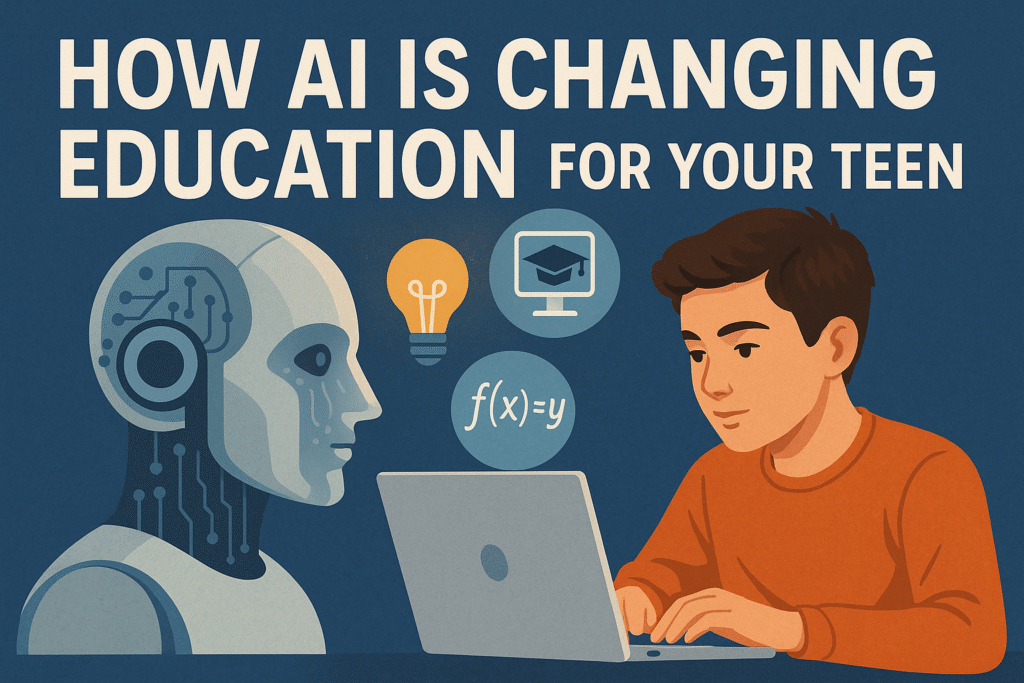
The same technology that makes learning easier can also make learning shallow.
When your teenager discovers they can get instant essays, solved math problems, or complete project answers from AI, the temptation to take shortcuts becomes overwhelming.
This isn’t necessarily your teen being lazy; it’s human nature to choose the path of least resistance.
The real danger lies in what educators call learned helplessness.
When students consistently rely on AI for answers without engaging their own thinking, they gradually lose confidence in their problem-solving abilities.
Your teenager might start believing they cannot write, calculate, or analyze anything without AI assistance.
This dependency becomes particularly problematic during exams or situations where AI isn’t available.
As Nobel Prize winner Daniel Kahneman observed, “The confidence people have in their beliefs is not a measure of the quality of evidence but of the coherence of the story the mind has managed to construct.”
When AI constructs the story for your child, they miss developing this crucial mental skill.
The solution isn’t banning AI but teaching intentional use.
Encourage your teenager to attempt problems independently first, then use AI to check their work or explore alternative approaches.
This way, AI becomes a verification tool rather than a thinking replacement.
Set clear family guidelines about when AI help is appropriate and when original thinking is required.
Related: 10 Time Management Tips for Teens to Succeed in School and Still Have a Life
AI is Becoming Your Teen’s Window into Future Careers
The job market your teenager will enter looks dramatically different from today’s employment landscape.
AI isn’t just changing how we work; it’s creating entirely new career paths while transforming traditional ones.
Understanding this shift helps your child make informed decisions about their education and future planning.
Emerging AI-enhanced careers your teen might pursue:
- AI Healthcare Specialist: Combining medical knowledge with AI diagnostics to improve patient care in Kenyan hospitals
- Smart Agriculture Consultant: Using AI-powered farming solutions to increase crop yields for local farmers
- Digital Finance Advisor: Helping banks and mobile money services implement AI for better customer service
- AI Education Coordinator: Training teachers and students to effectively integrate AI tools in classrooms
- Data Privacy Officer: Protecting personal information as more Kenyan businesses adopt AI systems
- AI Ethics Consultant: Ensuring AI applications align with cultural values and societal needs
- Automated Business Analyst: Using AI to help small and medium enterprises optimize their operations
- Digital Content Creator: Leveraging AI tools for video, audio, and written content production
Traditional careers aren’t disappearing; they’re changing.
Future lawyers will use AI for legal research, doctors will collaborate with AI for diagnoses, and teachers will use AI for personalized student support.
Your teenager’s success will depend on learning to work alongside AI rather than competing against it.
The key is developing uniquely human skills that complement AI capabilities: creative problem-solving, emotional intelligence, cultural understanding, and ethical reasoning.
These skills remain irreplaceable and highly valuable in any AI-enhanced career.
AI Is Becoming Your Teenager’s Online Companion

Many teenagers are developing unhealthy emotional attachments to AI that go far beyond simple educational tool usage.
Instead of asking AI quick questions about homework, they’re turning to it for personal advice, emotional support, and even friendship.
This concerning trend happens gradually; what starts as “help with my essay” changes into “what should I do about my relationship problems,” and eventually “you understand me better than my parents.”
This shift from tool to companion creates serious risks for your teenager’s emotional development.
When AI becomes their go-to source for comfort and guidance, they miss crucial opportunities to build real relationships and develop emotional resilience through human interaction.
| How Teens Use AI as a Companion | Why This Is Concerning |
| Sharing personal problems and seeking advice | Replaces learning to trust and confide in real people |
| Asking for validation and emotional support | Creates dependency on artificial rather than genuine relationships |
| Having long conversations about feelings and fears | Prevents the development of authentic communication skills |
| Preferring AI chat over talking to family and friends | Leads to social isolation and reduced empathy |
| Seeking AI’s opinion on major life decisions | Undermines critical thinking and personal judgment |
The danger isn’t that AI gives bad advice, it’s that your teenager becomes emotionally dependent on something that can’t truly understand human experience.
Real relationships involve disagreement, challenge, and growth through conflict. AI companionship offers false comfort that stunts emotional maturity.
Watch for warning signs: secretive AI conversations, preferring digital interaction over family time, or your teenager seeming more emotionally connected to AI than to real people in their life.
AI Is Becoming Your Teen’s Bridge Between Home and School
Modern education increasingly involves AI-powered platforms that connect classroom learning with home study, creating seamless educational experiences.
Your teenager’s school likely uses learning management systems that track progress, suggest additional resources, and communicate directly with parents about academic performance through AI analytics.
This technological bridge transforms how you participate in your child’s education.
Instead of waiting for monthly reports, AI systems provide real-time insights into your teenager’s strengths, challenges, and learning patterns.
You can identify subject areas needing extra attention before they become serious problems.
Ways AI bridges home and school learning:
- Progress tracking: Real-time updates on assignment completion, test scores, and subject mastery
- Personalized recommendations: Suggests specific resources, practice exercises, or study strategies based on your child’s performance
- Communication enhancement: Automated updates about school events, assignment due dates, and parent-teacher conference scheduling
- Resource sharing: Access to the same educational tools and materials your child uses in classroom settings
- Collaborative planning: AI helps coordinate between what teachers assign and how you can support at home
However, this increased connectivity requires new skills from both parents and students.
Your teenager needs to develop digital responsibility, understanding that their online learning behavior is visible and tracked.
You need to learn how to interpret AI-generated reports and use them constructively rather than punitively.
The key is viewing AI as a communication tool that enhances rather than replaces human relationships between parents, students, and teachers.
When used wisely, it creates opportunities for more meaningful conversations about your teenager’s educational journey and future aspirations.
Learn More: 5 Resourceful Websites for High School Students
Let us Help You Handle AI Changes in Your Teen’s Life
At ParenTeen Kenya, we understand that handling AI in your teenager’s education can feel overwhelming. That’s why we offer specialized training workshops for both parents and teens on responsible AI usage, helping families establish healthy boundaries while maximizing educational benefits.
For deeper concerns about your teenager’s relationship with technology or emotional well-being, our professional counseling services provide a safe space for meaningful conversations and healing.
Ready to guide your teen’s AI journey confidently? Contact PTK today to schedule your family’s AI readiness consultation and take the first step toward balanced, beneficial technology use.
Jane Kariuki is a devout Christian, Clinician, Psychologist, and founder of ParenTeen Kenya. She authored an exceptional training manual used in her teens’ workshop and an instructional guidebook for her parenting classes. If she is not training, blogging, or counseling, Jane loves to spend time with her sweet husband and three children.

